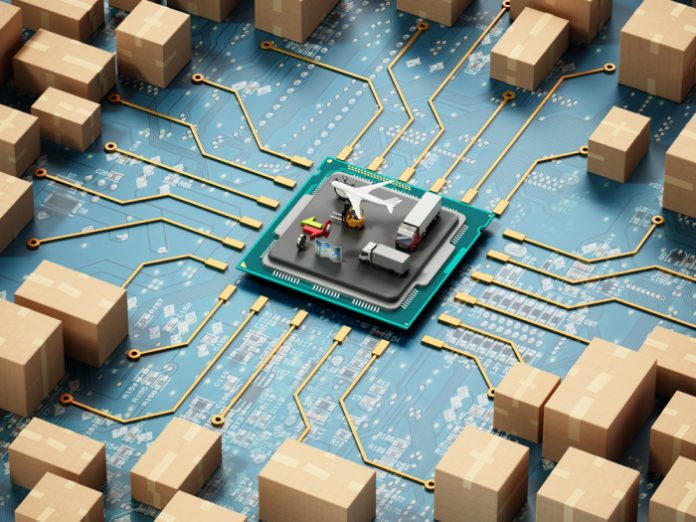From self-driving cars to automated warehouses, Industry experts like John Patrick Latta from Philadelphia, PA, know it is clear that artificial intelligence (AI) has had a transformative effect on the logistics industry. This article examines how AI changed how to transport and deliver goods. We also discuss some benefits of using AI in logistics operations.
What Is Artificial Intelligence?
Artificial intelligence (AI) is a term that covers a wide range of technologies, from simple algorithms that help filter spam emails to more complex systems that can interpret and respond to natural language. However, at its core, AI is about creating machines that can learn and work independently. This is something that has traditionally been very difficult for computers to do. However, recent advances in machine learning have made it possible to create AI systems that can autonomously improve over time.
John Patrick Latta says this has several potential benefits for logistics companies. For example, AI-powered robots could automate the sorting and loading of packages. This could lead to substantial increases in efficiency and productivity. In addition, AI could develop better routing algorithms, saving time and money by ensuring the quickest and most efficient delivery of packages possible.
Finally, AI-based analytics could be used to improve visibility into the supply chain, making it easier to identify bottlenecks and potential problems. Overall, AI holds immense potential for the logistics industry, and those companies that can effectively harness this technology will likely experience significant competitive advantages.
How Has AI Impacted the Transportation and Delivery of Goods to Consumers?
One of the most visible ways AI is changing logistics is through the development of autonomous vehicles. Self-driving cars have the potential to revolutionize the transportation of goods. For example, rather than relying on human drivers, self-driving trucks could transport goods over long distances. This would free up a considerable amount of time and resources. In addition, autonomous vehicles are less likely to be in accidents, leading to lower insurance costs.
Package delivery is another field where AI is already having an effect. Amazon, for example, is currently experimenting with delivering orders directly to customers’ houses using drones. While this technology is still in its early phases, it has the potential to reduce last-mile delivery times substantially. AI can also create better package routing algorithms. This might result in significant parcel delivery time and cost savings.
Finally yet importantly, John Patrick Latta says AI creates new strategies for monitoring and tracking packages. This is significant since it potentially guarantees that shipments are timely and not lost in the system. In addition, this data can be leveraged to enhance supply chain visibility and identify potential issues.
What Challenges Does AI Present for the Logistics Industry?
There are many potential benefits of using AI in logistics, but some challenges must be addressed. One of the biggest challenges is data privacy. Since AI systems rely on large amounts of data to function, there is a risk of leaking sensitive information. This is a particularly relevant concern for companies that deal with sensitive or regulated materials.
Another challenge to address is the potential for job losses. As AI-powered robots and autonomous vehicles become more common, machines will likely replace many jobs. This could lead to significant social and economic disruptions. However, it is essential to note that this is not necessarily bad. While there will be job losses, AI will create new employment opportunities.
Finally, testing and validating AI systems before using them correctly is critical. This is necessary to avoid mishaps and to ensure that the programs work as intended.
What Trends Can We Expect to See in AI-Enabled Logistics?
One trend we can expect is the continued development of autonomous vehicles. As mentioned before, autonomous vehicles have the potential to revolutionize the logistics industry. We hope to see more companies experimenting with this technology in the coming years.
Sorting and loading shipments will be two more tasks that AI-powered robots will likely take on. This may result in significant increases in efficiency and productivity. There is an expectation that more firms utilize AI-based analytics to enhance supply chain visibility. This data might detect potential issues and optimize operations by identifying trends, among other things.
Finally, John Patrick Latta says we can anticipate seeing more AI-based tracking and tracking technology in use. These technologies are becoming more sophisticated, allowing them to provide real-time information on the location of shipments. This data is critical for ensuring that items arrive promptly and without incident.
Final Thoughts
Overall, it is clear that artificial intelligence is having a profound impact on the logistics industry. There are many potential benefits of using AI in logistics, but there are some challenges to be addressed. However, if these challenges can be overcome, then AI has the potential to transform the way goods are transported and delivered to consumers.
Find a Home-Based Business to Start-Up >>> Hundreds of Business Listings.














































